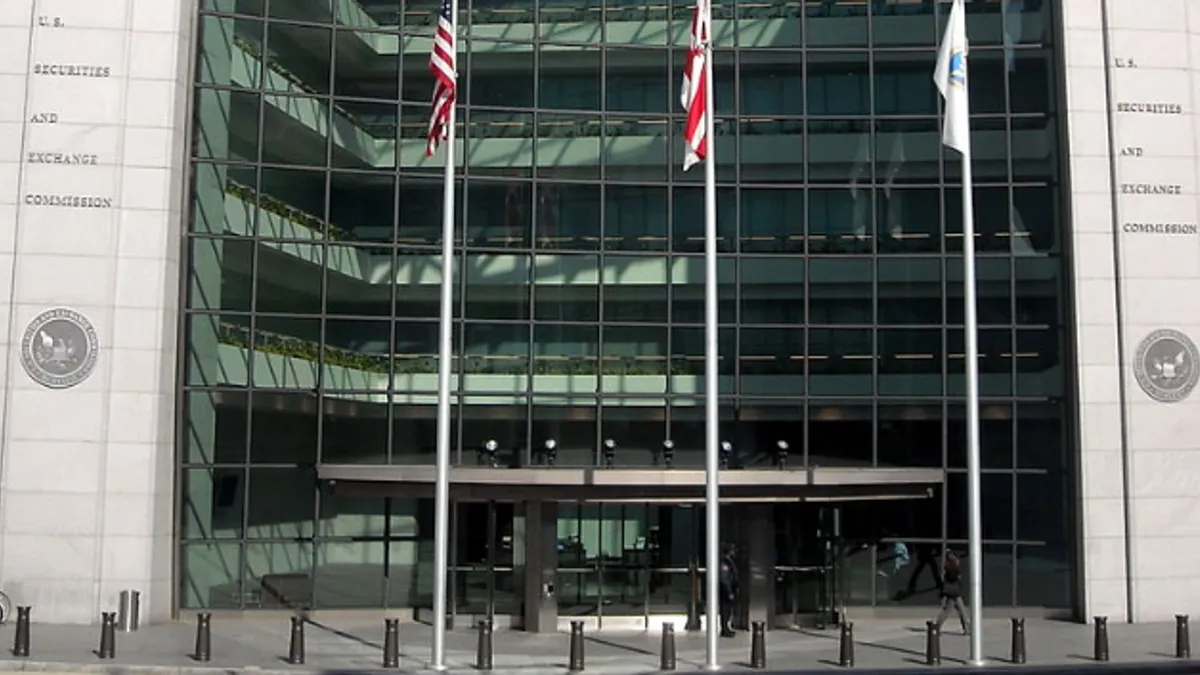Dive Brief:
- The Securities and Exchange Commission (SEC) filed an emergency action and obtained a temporary restraining order on Monday against encrypted messaging app Telegram and its parent company for the sale of $1.7 billion in digital tokens, called Grams, to investors.
- Telegram Group Inc. and TON Issuer Inc. began raising capital in January 2018 to finance the development of their own blockchain, the “Telegram Open Network,” as well as the mobile messaging application Telegram Messenger.
- In its complaint, the SEC said the tokens function as securities, and therefore should have been registered under the Securities Act of 1933.
Dive Insight:
"Our emergency action ... is intended to prevent Telegram from flooding the U.S. markets with digital tokens that we allege were unlawfully sold," Stephanie Avakian, co-director of the SEC’s Division of Enforcement, said in a statement. "We allege that the defendants have failed to provide investors with information regarding Grams and Telegram’s business operations, financial condition, risk factors, and management that the securities laws require."
Defendants sold approximately 2.9 billion digital tokens at discounted prices to 171 initial purchasers worldwide, including more than 1 billion Grams to 39 investors in the U.S.
Telegram promised to deliver the Grams to the initial purchasers upon the launch of its blockchain by no later than Oct. 31 at which time the purchasers and Telegram will be able to sell billions of Grams into U.S. markets.
For all intents and purposes, the tokens are securities because "the initial purchasers and subsequent investors expect to profit from Telegram's work: the development of a TON 'ecosystem,' integration with Messenger, and implementation of the new TON blockchain," according to the complaint. "Grams are not a currency because, among other things, there are not any products or services that can be purchased with Grams. Rather, there is an expectation on the part of investors that they will profit if Telegram builds out the functionalities it has promised."
Under the complaint, filed in federal district court in Manhattan, both companies are charged with violating the registration provisions of Sections 5(a) and 5(c) of the Securities Act, and seeks certain emergency relief, as well as permanent injunctions, disgorgement with prejudgment interest, and civil penalties.
"We have repeatedly stated that issuers cannot avoid the federal securities laws just by labeling their product a cryptocurrency or a digital token," said Steven Peikin, co-director of the SEC’s Division of Enforcement. "Telegram seeks to obtain the benefits of a public offering without complying with the long-established disclosure responsibilities designed to protect the investing public."












